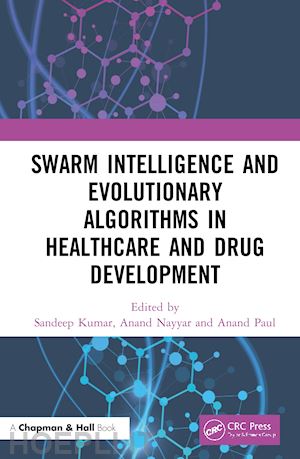About the Editors Sandeep Kumar is currently an Assistant Professor of Computer Science & Engineering at Amity University Rajasthan, Jaipur, India. Dr. Kumar holds a PhD degree in Computer Science & Engineering, M. Tech. degree from RTU, Kota, BE degree from Engineering College, Kota. Dr. Kumar was Assistant Professor of Computer Science & Engineering at ACEIT, Jaipur, 2008–2011, and Assistant Professor of Computer Science, Faculty of Engineering & Technology, Jagannath University, Jaipur, 2011–2017. Dr. Kumar was the head of computer science at Jagannath University, 2013–2017. He is also working as guest editor for special issue of many journals including Int. J. of Intelligent Information and Database Systems (IJIIDS), Int. J. of Agricultural Resources, Governance and Ecology (IJARGE), Int. J. of Environment and Sustainable Development (IJESD), Inderscience, Recent Patents on Computer Science, Bentham Science, and member of editorial boards for many international journals, and member of technical program committees of many conferences. He has delivered many keynote and expert talks in national/international conferences/workshop. He is also reviewer in many international journals and conferences, and acts as chairperson in many conferences. Dr. Kumar has over 50 publications in well-known SCI/SCOPUS indexed international journals and conferences, and has attended several national and international conferences and workshops. He has authored/edited four books in the area of computer science. His research interests include Nature Inspired Algorithms, Swarm Intelligence, Soft Computing and Computational Intelligence. Anand Nayyar received a PhD degree in Computer Science from Desh Bhagat University in Mandi Gobindgarh. Currently, he is working as Lecturer, Researcher and Scientist at the Graduate School at Duy Tan University, Vietnam. He has 15+ years of academic teaching experience with more than 300 publications in reputed international conferences, journals and book chapters (indexed By: SCI, SCIE, Scopus, DBLP). Dr. Nayyar is a certified professional with more than 75 certifications from various IT companies like: CISCO, Microsoft, Oracle, Cyberoam, GAQM, Beingcert.com, ISQTB, EXIN, Google and many more. His areas of interest include: Wireless Sensor Networks, MANETS, Cloud Computing, Network Security, Swarm Intelligence, Machine Learning, Network Simulation, Ethical Hacking, Forensics, Internet of Things (IoT), Big Data, Linux and Open Source and Next Generation Wireless Communications. In addition, Dr. Nayyar is a Programme Committee Member/Technical Committee Member/Reviewer for more than 400 international conferences to date. He has published 30 books in Computer Science by various National and International Reputed Publishers like CRC Press, Elsevier, Springer, IGI-Global, BPB Publications, Scholar Press, GRIN etc. He has received 20 awards for teaching and research, including Young Scientist, Best Scientist, Exemplary Educationist, Young Researcher and Outstanding Reviewer Award. He is acting as Associate Editor of IGI-Global Journal - International Journal of Information Security and Privacy (IJISP), International Journal of Distributed Systems and Technologies (IJDST), International Journal of Cognitive Informatics and Natural Intelligence (IJCINI), and International Journal of Green Computing (IJGC). He is acting as Editor-in-Chief of IGI-Global Journal “International Journal of Smart Vehicles and Smart Transportation (IJSVST)”. Anand Paul is currently working in The School of Computer Science and Engineering, Kyungpook National University, South Korea, as Associate Professor. He got his Ph.D. degree in electrical engineering at National Cheng Kung University, Taiwan, R.O.C., in 2010. His research interests include Algorithm and Architecture Reconfigurable Embedded Computing. He is a delegate representing South Korea for M2M focus group and for MPEG. In 2004–2010 he has been awarded Outstanding International Student Scholarship, and in 2009, 2015 he won the best paper award in national computer Symposium, in Taipei, Taiwan, and international conference on Soft computing and network security, India. He has guest-edited various international journals and he is also part of editorial team for Journal of Platform Technology. He serves as a reviewer for various IEEE Transactions on Circuits and Systems for Video Technology, IEEE Transactions on System, Man and Cybernetics, IEEE Sensors, ACM Transactions on Embedded Computing Systems, IET Image Processing, IET Signal Processing and IET Circuits and Systems. He gave invited talk in International Symposium on Embedded Technology workshop in 2012, He is the track chair for Smart human computer interaction in ACM SAC 2015, 2014. He is also an MPEG Delegate representing South Korea.











